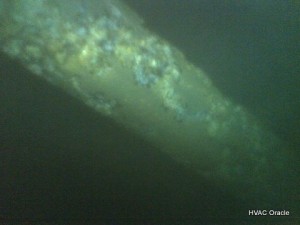Many residents in the Cheakamus Crossing, ask about the maintenance required for their heat pumps. These heat pumps, do not have items that require annual service, there are no filters to change, motors to oil or belts to replace. Having the units inspected every year is not necessary but couldn’t hurt, if inspected by a qualified refrigeration technician. Anyone else, and it just may hurt, the heat pump and the wallet. A qualified technician can identify hidden issues such as overheating, control problems, circulation problems and other issues, preventing future issues.
In the past, there have been number of problems which had nothing to do with maintenance. Most of which were manufacturer issues with the equipment, installation issues that have been corrected or operator issues.
The only, “maintenance type” item that has been an issue, is the cleaning of the load heat exchangers, the frequency of which is undetermined.
These units have run since the fall of 2008 and, several of these units have been tripping on high pressure. The load heat exchangers, that transfers heat from the refrigerant, to the heating water, have built up scale on the interior surfaces which cause the unit run higher pressures. These units trip on high pressure at 610 PSI. Pressures this high can do serious damage and is not something that can be resolved by a DIYer or unqualified service tech safely. If you see a red screen that reads E2 High pressure fault, call a qualified technician for service. Resetting the control, will restart the unit for a while but it will run hotter than normal. Resting the control multiple times can lead to compressor damage.
There are no access valves on the heat exchanger which makes cleaning difficult and there is a limited number of choices for cleaning and treatment. The heat pump is used for potable water which places several restrictions on what treatment that can be used. If a potable water system, is even at risk of being contaminated, it is considered a serious issue and very expensive to resolve.
There are two other heat exchangers, one for the potable hot water and one the source water. It may be necessary to clean these heat exchangers as well in the future. Several source heat exchangers required cleaning, in the first two years of operation, due to DESS water quality issues, which has since been resolved.
The two storage tanks have aluminum anodes which will need to be replaced in a few years, even sooner if you live in the upper rise. This image was taken last year and shows some corrosion but will be several years before it needs to be replaced.



